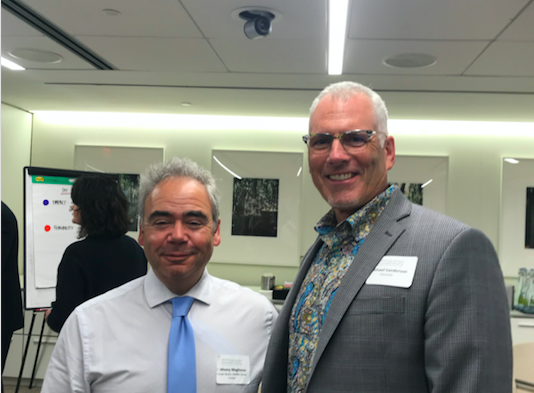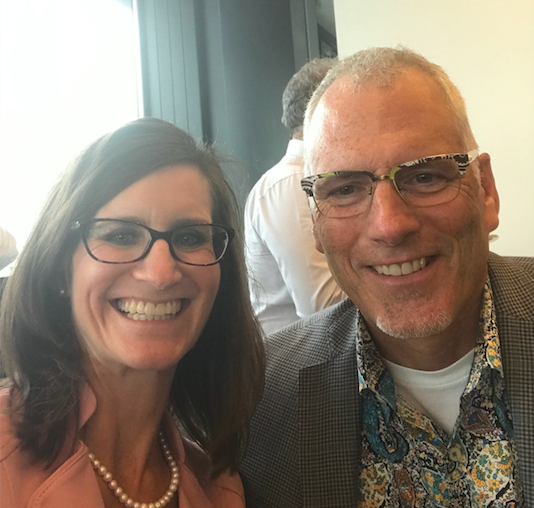
In many healthcare settings the important role of pathology is underestimated and misunderstood. Likely, we can thank TV crime shows for the public perception that pathologists only perform autopsies and complicated analyses that help catch bad guys.
In reality, pathology and pathologists do so much more. Thanks to the developing discipline of molecular pathology and our growing understanding of the human constitution at the molecular level, pathologists have been working overtime. They’ve been on the frontlines, using technologies such as next generation sequencing (NGS), to better diagnose and classify disease, predict treatment response, and even determine susceptibility of people to develop disorders based on their genetic constitution. When you consider that better diagnoses, treatments, and preventive measures have the ability to positively impact patients while potentially putting a lot less stress on our healthcare system, it doesn’t take long to figure out that pathology-- and pathologists--are where it’s at. Indeed, they have the ability to catalyze our healthcare system to provide better, more efficient, and less expensive care.
But fully understanding the important role of today’s pathologist is only the first step. We must find ways to better integrate them and their expertise into the fabric of our healthcare system, especially when it comes to cancer care.
Elevating the role of pathology into cancer care was the objective of a day-long summit that I participated in recently. The Association of Cancer Care Centers (ACCC) recently assembled nearly 60 healthcare leaders to discuss how we can better integrate molecular pathology to improve cancer care in the areas of biomarker testing, diagnosis and treatment, and reimbursement and policy. Over the course of one day and with the help of a facilitator, we discussed the challenges and opportunities facing pathologists and how we can do more to empower them.
.jpg?width=4032&name=Image%20from%20iOS%20(4).jpg)
Christian Downs, Executive Director of ACCC, and me during a brief break in the action.
Cancer Biomarker Testing
First, we discussed cancer biomarker testing and the important role that molecular pathology plays. Using molecular profiling modalities to individualize treatments for patients is no longer science fiction, yet it’s still not as easy as it could be. Some of the challenges revolve around the tests themselves. Assay selection can be difficult, not to mention what it takes to implement and validate the test. It’s so challenging, in fact, that many organizations opt to send them to an external laboratory and then describe themselves as being at the mercy of the external lab for an optimal turnaround time. For many of these tests, sample quality and quantity is also an issue -- do you have enough sample to get an accurate result? And the challenges don’t end once the test is underway. Interpreting test data and getting reimbursed also pose significant obstacles..jpg?width=4032&name=Image%20from%20iOS%20(7).jpg)
An example of how we brainstormed and then prioritized actions based on feasibility and impact. A facilitator and illustrator were present to help us capture our discussions.
This is where the day became really interactive. We brainstormed and then prioritized action based on feasibility and impact. Several suggestions rose to the top:
*Standardize test ordering to streamline the process as much as possible
*Standardize specimen management to maximize the amount of sample available for tests
*Zero in on one pathology report and fill that report with standardized, colloquial language that is well understood by the pathologist and the ordering physician
*Build the process of the pathologist into practice guidelines as a means to ensure more tests are reimbursed
*Empower pathologists to effect cultural change by providing opportunities for education and actionability
Cancer Diagnosis and Treatment
Next up was our segment on how we can better involve pathologists in the diagnosis and treatment of cancer. Everyone agreed that challenges range from pathologists predominantly being generalists but having to diagnose all types of cancer, to the pathologist having a lack of information about the patient they are diagnosing, to the pathologists’ lack of time and challenges imposed by their geographical location.

This is a photo of Tony Magliocco, Chair Department of Pathology, H. Lee Moffitt Cancer Center, and me. Tony and his team have been long-time partners of PierianDx.
For challenges related to the diagnosis and treatment of cancer, all of our suggestions focused on finding new ways to make it easy for pathologists to collaborate with all others involved in the patient’s care. This means providing methods for the pathologist and ordering physician to communicate through systems that are integrated with one another. But this might also entail development of virtual tumor boards, where pathologists can join in on the discussion no matter where they are geographically. Participants also agreed that incentivizing pathologists to insert themselves as a regular participant in care discussions would go a long way.
Reimbursement and Policy
What discussion on this topic would be complete without talking about reimbursement and policy? We discussed these topics next. Although the Center for Medicaid and Medicare Services recently announced a national coverage determination for NGS testing, there is still a lot of ambiguity and confusion. Of course, we all agreed that we need to build the body of evidence that demonstrates the value of molecular testing, but we also agreed that there is some low-hanging fruit. For starters, physicians who order the test can be more informed about the financial impact of the test on the patient and the practice. Likewise, we can do more to educate patients on what they may be in for financially if they opt for one of these tests.

Michelle Shiller, Cancer Care Quality Committee, Baylor Scott & White Health, and me.
The Future of Pathology
Clearly, our one-day panel discussion won’t solve all of the challenges facing today’s pathologists. But what it did do was drive home the message that the role of the pathologist has changed and will continue to do so. We must take a long-term point of view and ensure that pathologists can continue to provide their expertise in a way that best benefits each patient. If it makes fewer demands on our healthcare system then this is the icing on the cake.
Regardless, sitting in a room with other healthcare leaders--many of them pathologists and oncologists--who understand the challenges and who want and have great ideas for addressing them felt like somewhat of a remedy in itself. Although we may have been discussing the important role of pathologists, it was clear that everybody in the room was ultimately thinking about patients.
References
Accc-cancer.org. (2018). ACCC | About. [online] Available at: https://www.accc-cancer.org/home/about [Accessed 5 Aug. 2018].
